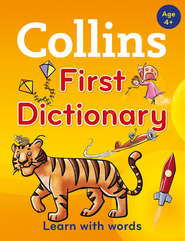По всем вопросам обращайтесь на: info@litportal.ru
(©) 2003-2025.
✖
Easy Learning French Conversation
Автор
Год написания книги
2019
Настройки чтения
Размер шрифта
Высота строк
Поля
• If you’re in a hurry, you can hop on the train and buy a ticket for a small amount extra directly from a ticket inspector - go and see him or her as soon as you’re on the train or you might be suspected of resquillage (fare-dodging).
• Queues tend to be informal in French-speaking countries. So if you’re trying to get to an information desk and don’t know if it’s your turn, just ask C’est à moi? or C’est mon tour? (Am I next?). If you want to let someone in before you, you can say après vous (after you).
Home from home (#ulink_a8a741f9-8420-57dc-bed4-b9f0d8dceb14)
Dors bien! – Sleep well! (#ulink_82198e79-5a22-5a57-89af-aed79048b091)
If you’re going to stay in a French-speaking country, the phrases in this unit will provide you with the language you need to help you find the sort of accommodation you want (hotel, hostel, self-catering accommodation or a flat to rent) and ensure that everything is to your satisfaction when you’re there. We’ll also give you a few tips on what the receptionist or your landlord or landlady may say to you.
ASKING FOR THINGS (#ulink_95414f3d-b01b-5c29-9014-79ef0e5c9607)
To say what kind of accommodation you want in French, use je voudrais or je souhaite (I’d like). voudrais comes from the verb vouloir and souhaite comes from the verb souhaiter. For further information on vouloir and -er verbs like souhaiter, see here (#litres_trial_promo) and here (#litres_trial_promo).
I’d like…
je veux is a slightly more direct way of saying what you want.
I want…
Use je tiens à to say that you insist on something. tiens comes from the verb tenir.
I insist on…
When you want to find out if something is available, use Est-ce que vous avez…? (Do you have…?) or Est-ce que vous auriez…? (Would you have…?). These come from the verb avoir. For more information on avoir, see here (#litres_trial_promo).
Do you have…?
Can I have…?
If you are asking someone whether they can do something for you, use Est-ce que pouvez…? (Can you…?) and Est-ce que vous pourriez…? (Could you…?). They both come from the verb pouvoir. For more information on pouvoir, see here (#litres_trial_promo).
Can you…?
Would you mind…?
TALKING ABOUT YOURSELF (#ulink_1e6a134b-3c96-50ff-9842-62729b06fb43)
When you are enquiring about somewhere to stay you will need to give information about yourself. Use je suis (I am) to talk about yourself and on est (we are) to include the people who are with you. These come from the verb être. For more information on être, see here (#litres_trial_promo).
I’m…
My name is…
BON À SAVOIR!
Remember that the French alphabet is pronounced differently from the English alphabet. For more information on how to say letters of the alphabet in French, see here (#litres_trial_promo).
ASKING FOR INFORMATION (#ulink_b0c42469-7aa1-5115-9745-85baf6e0e8da)
When you want to obtain some information about your accommodation, an easy way to ask questions is just to put est-ce que before what you want to know. Alternatively, you can simply make your voice go up at the end of the sentence. This sounds more informal than using est-ce que.
Is it…?
You can use Il y a…? in French to ask both Is there…? or Are there…?.
Is there…?
Use je cherche (I’m looking for) or on cherche (we’re looking for) to ask where something is. cherche comes from the verb chercher. For more information on -er verbs like chercher, see here (#litres_trial_promo).
I’m looking for…
To get more specific information you may need to ask Quel…? (What…?), Où…? (Where…?) or À quelle heure…? (What time…?).
What…?
BON À SAVOIR!
Remember to use quel with a masculine word and quelle with a feminine word.
Where…?
What time…?
You are very likely to want to ask how much something costs. To do this, use a phrase containing combien.
How much…?
How many…?
ASKING FOR PERMISSION (#ulink_2e469a75-f135-5487-8855-fc113da71517)
Often when you are staying in a hotel or other accommodation you will need to be able to ask whether you can do something or not. Use Est-ce que je peux…? (Can I…?) or Est-ce que nous pouvons…? (Can we…?) to ask if you can do something. These come from the verb pouvoir. For more information on pouvoir, see here (#litres_trial_promo).
Can I…?
Do you mind if…?
If you want to ask someone if you may do something, use Vous permettez que…? (Am I allowed to…?) followed by a verb in the subjunctive. For more information on the subjunctive, see here (#litres_trial_promo).
Am I allowed to…?
SAYING WHAT YOU LIKE, DISLIKE, PREFER (#ulink_68b1cec9-ae33-5b5a-8a80-d980ddbaab5b)
When talking about what you like, use j’aime bien (I like), which is not as strong as j’aime or j’adore (I love). To say what you don’t like, just use je n’aime pas (I don’t like). These come from the verb aimer. For more information on aimer, see here (#litres_trial_promo).
I like…
I don’t like…











